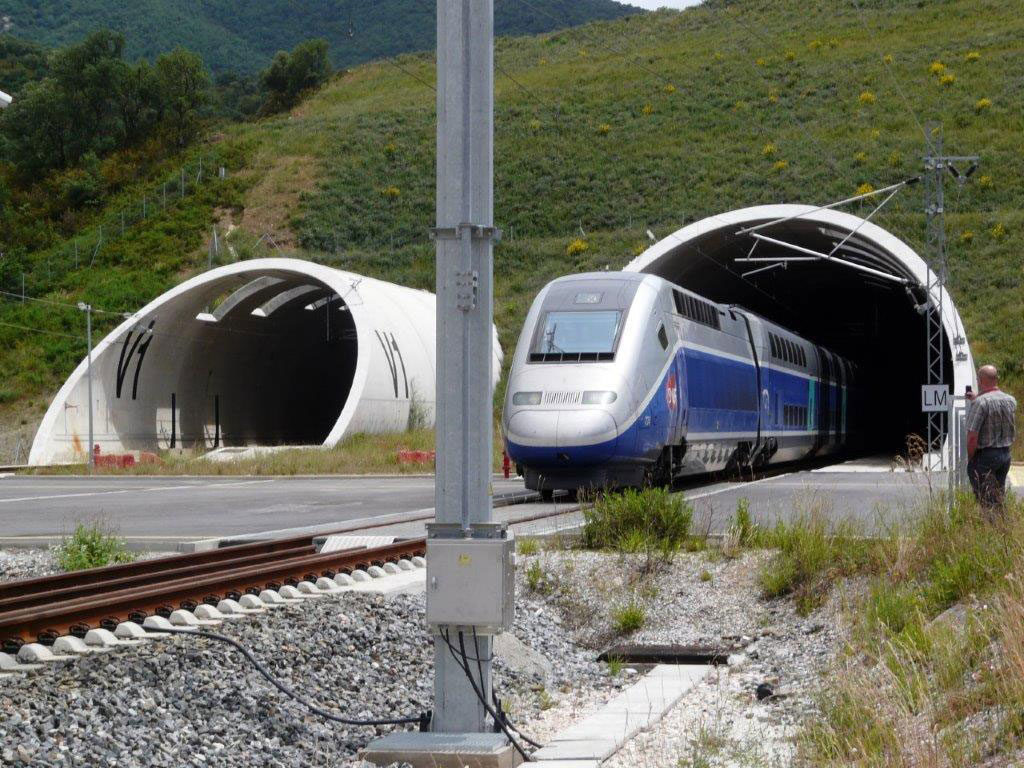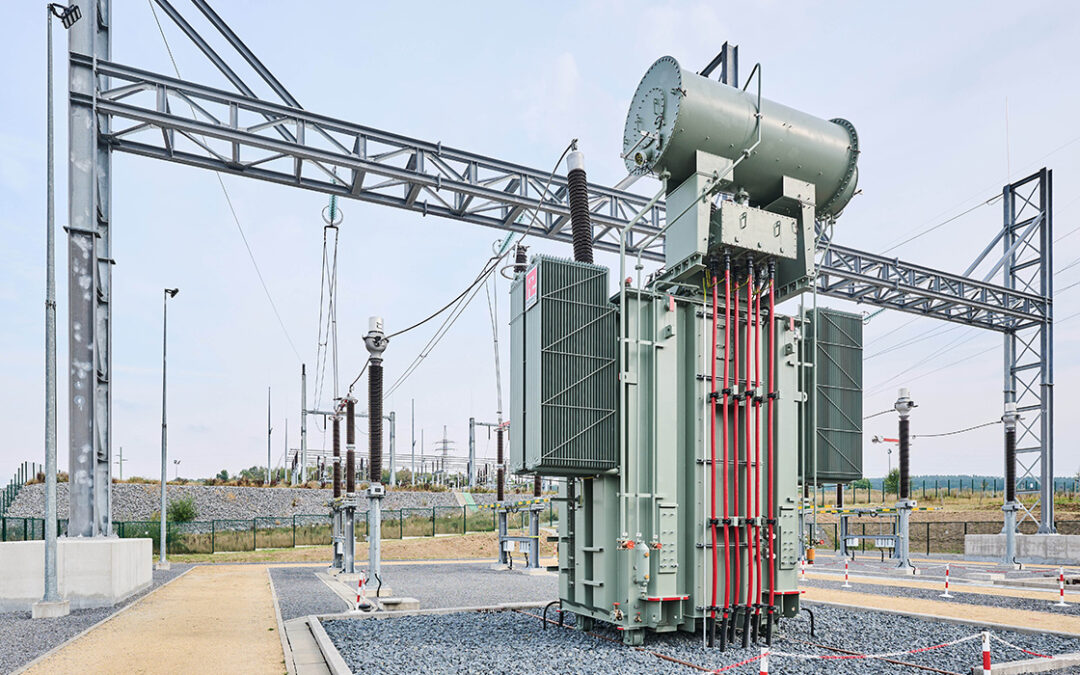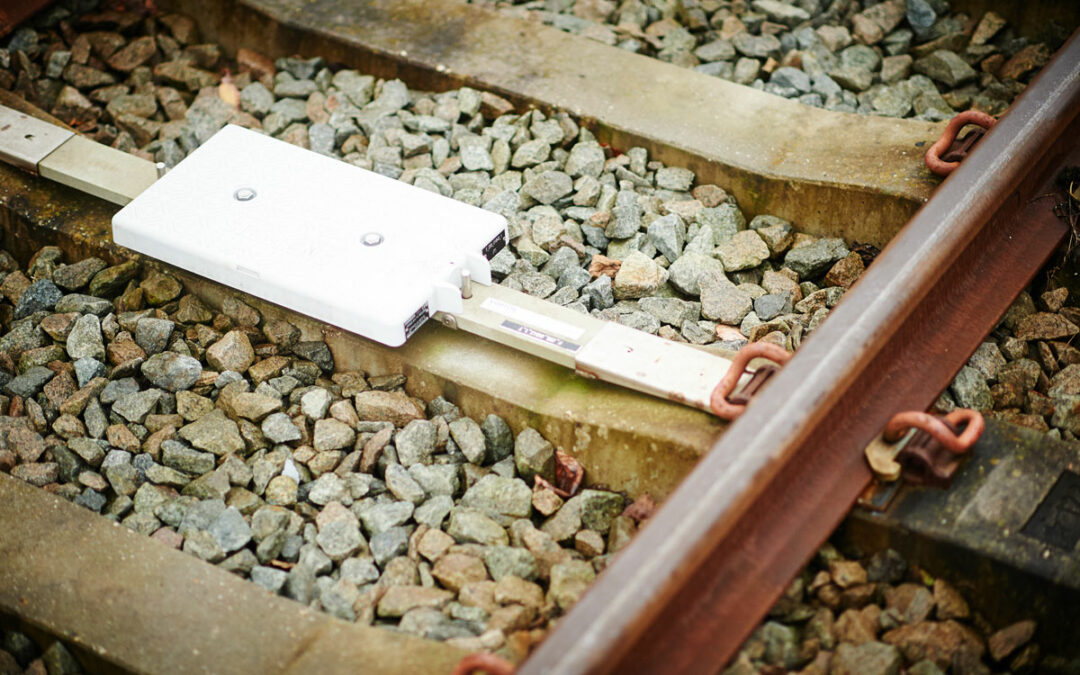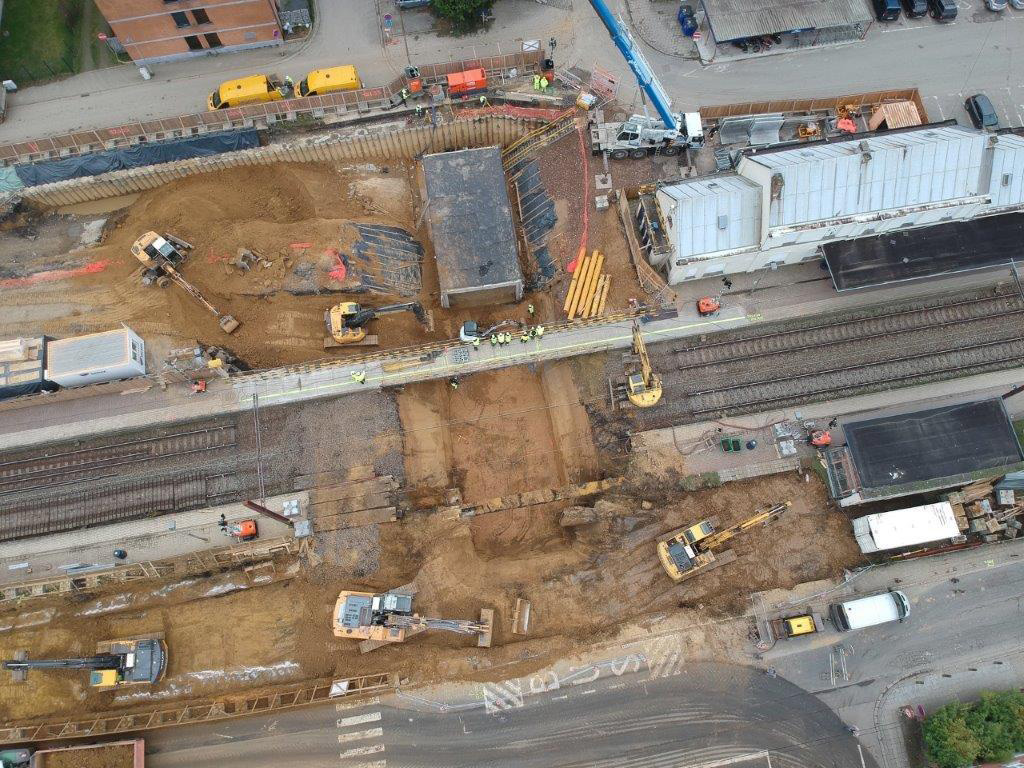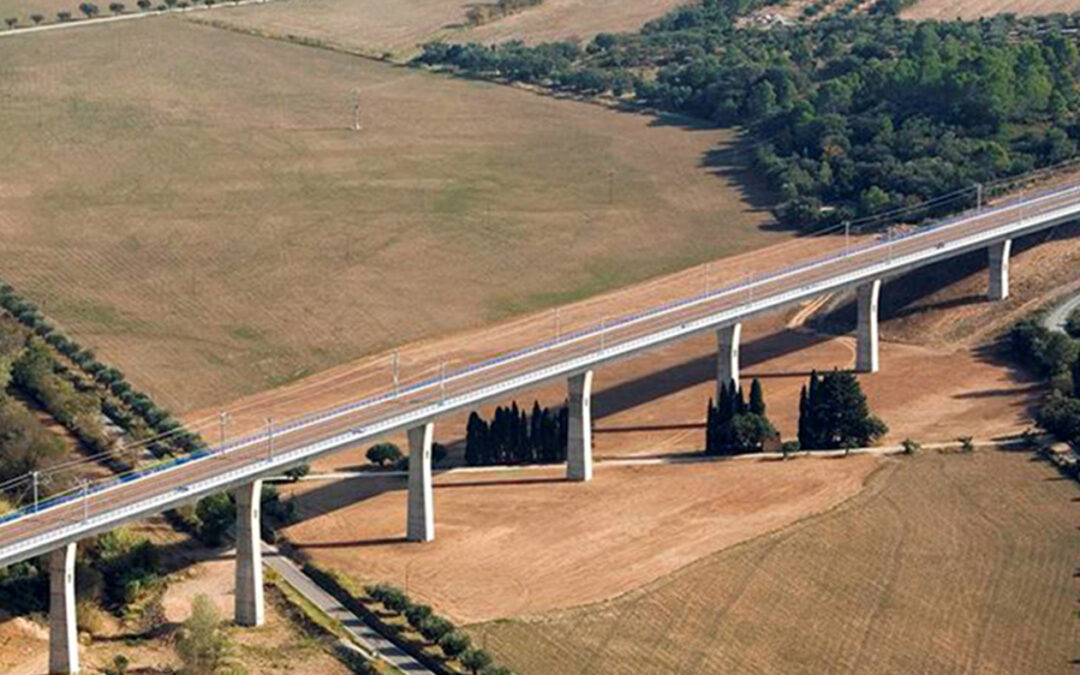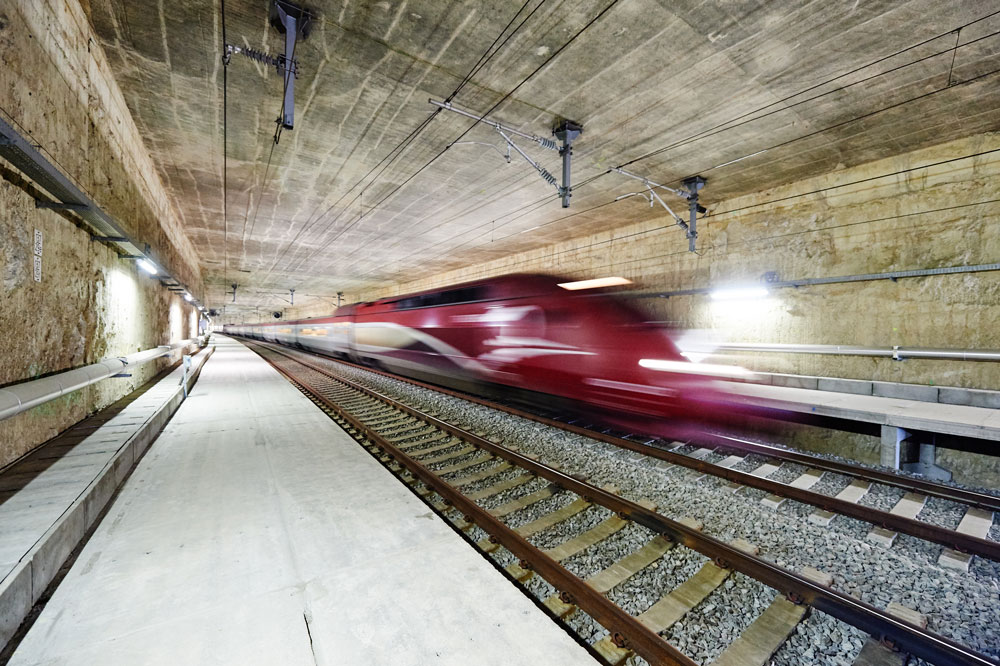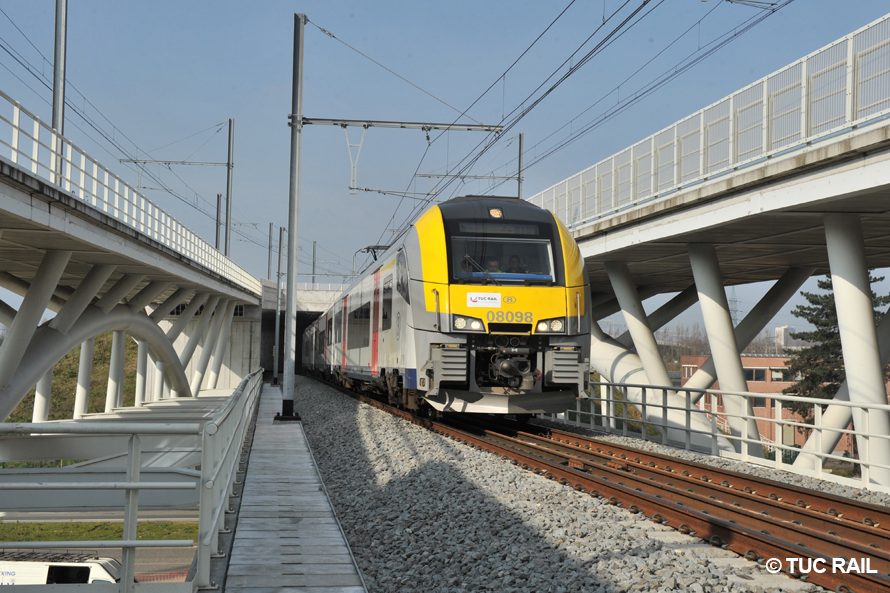The Perpignan-Figueres International high-speed railway section
The project consisted of the realisation of a 44.4 km long mixed – passenger and freight – high speed double railway line between Perpignan and Figueras connecting France and Spain through a 8km long twin-bored tunnel through the Pyrenees mountains. This challenging cross-border railway project was characterised by the fact that this international section needed to connect the French railway network with standard UIC gauge with the Spanish rail network (1635mm). Furthermore, the new railway infrastructure needed to comply with the French, Spanish and international standards whilst ensuring interoperability between the 2 national railway networks.
Our mission
TUC RAIL assisted the winning contractor’s consortium from the tendering stage onwards to help deliver general arrangement designs and BOQs within the framework of the procurement process for this PPP-project (DBFMOT – Design-Build-Finance-Operate-Transfer) with a 50-year concession (5 years to build – 45 years to operate).
Besides its role as railway systems engineering company for the delivery of the concept and detailed designs for signalling, track, catenary and power substations on the project, TUC RAIL was also providing specialist expertise for the avoidance of the sonic boom at the entrance and exits of the tunnel by designing calibrated pre-tunnels, for the implementation of the ETCS level 2 with fallback option to ETCS level1, as well as for the drafting of the preliminary operations and maintenance manuals for the concessionaire. Assistance for the local works supervision as well as for the certification process was also provided.
